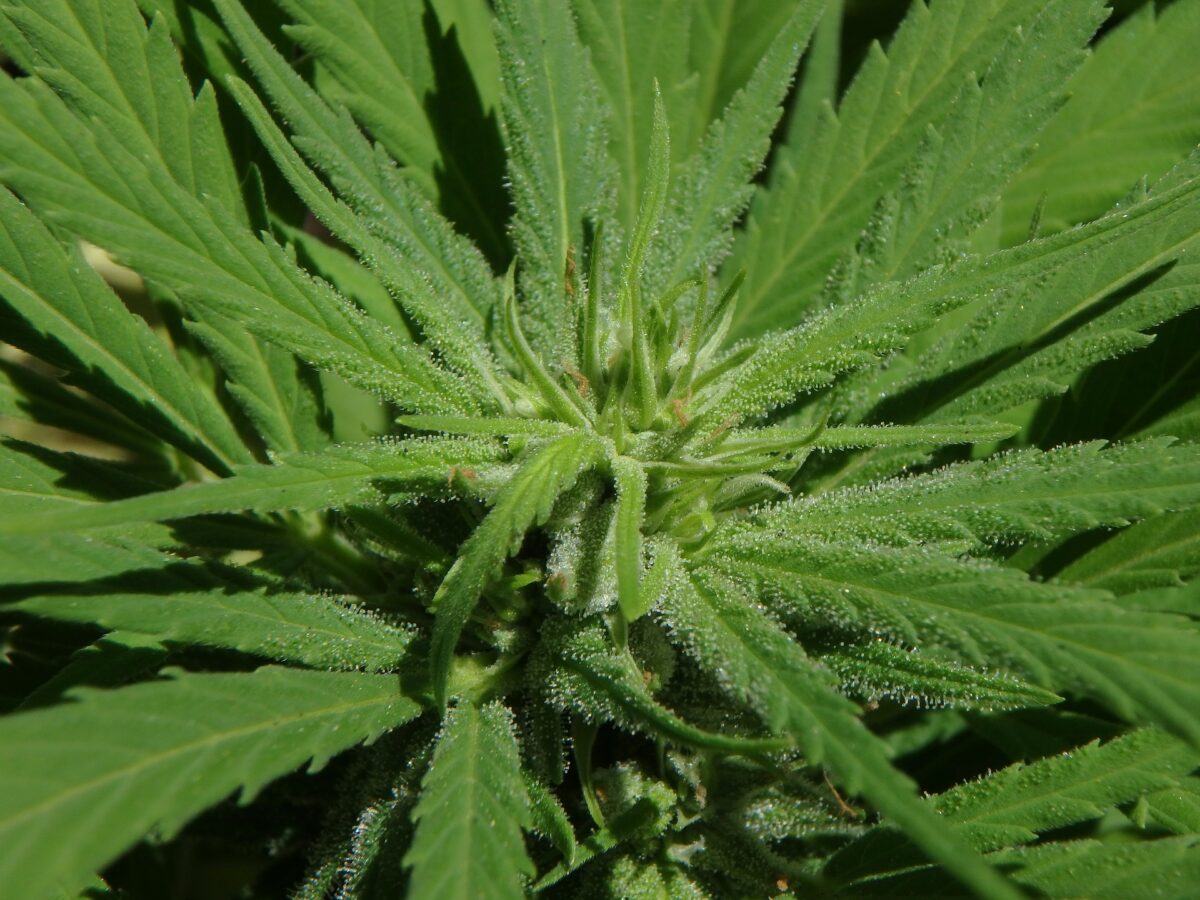
Tackling Racism in the Workplace
A conversation with Dr. Tiffany Bowden, an Anti-Racism educator

It’s time to have conversations in the workplace about racism, and if you don’t know where to start that’s where anti-racism educators like Dr. Tiffany Bowden can help. Dr. Bowden is an entrepreneur, business consultant, corporate diversity expert, and founding president and co-founder of the Minority Cannabis Business Association (MCBA). To add to this impressive CV, Dr. Bowden also gave an eye-opening Ted Talk on racism called, How My Coloring Book Taught Me About Racism. If that’s not enough, she also hosts diversity workshops and Allyship training for corporations looking to combat diversity issues within their organizations. I had the privilege of talking to Dr. Bowden about her work tackling diversity issues and her approach to hosting Allyship workshops.
—
First of all, l just want to know how you are doing?
This is a very interesting time, I have seen an uptick in micro-aggressions but I have also seen an uptick in outward support and love. People are really answering the call to stop the silence from White people in particular, and for people to engage and help with the emotional labor of confronting White supremacy. I myself have been just very emotional, even after dealing with this for 20 years professionally as an anti-racism educator, it’s different to navigate it in the mind and walk around in the streets and see murals with validating language, like “We see you. We hear you. We’re with you.” This is a whole different thing to experience in the heart, and I think for a lot of Black people it’s as uncomfortable as it is empowering watching your invisibility disappear. It has also led to an increase in requests for diversity training and support which is really great, that means that people are interested in moving forward and doing better.
To your point about emotional labor, I’ve talked to a lot of friends who are not Black and people are saying, “This is really hard to keep up with,” and this is super recent for a lot of people who are getting involved. It’s only been a week and a half for those people, but Black people have been dealing with this for their entire lives.
Exactly, it’s like “ok that’s enough, let’s see what’s on Netflix!” That’s what we have tried to elevate, that this is exhausting! For a lot of Black people when they are in organizations, the emotional labor gets put on people of color to do the diversity and inclusion work. A lot of times, that is given to people of color on top of the job they actually have. I say people of color because that is not just limited to Black people; that is a form of “otherization.” Anyone not White is expected to do that labor and when it comes to gender issues anyone not male is supposed to be educated about those things, which creates a niche reality. Not everyone wants to take on that labor, but not everyone has the privilege to deny taking on that labor. It can be very exhausting. In my case, I have taken up that element and I actually enjoy this work but it is also a profession I get paid for. When you simply transfer over that labor to people of color and not recognize the actual effort and energy expenditure that goes into that, you are creating an invalidating experience, that’s very draining. It is work for White people to do. But I understand if you’ve been living under the guise of privilege you probably don’t even know where to start. That’s where I can come in.
Could you walk me through one of your workshops?
It depends on the workshop. I do not do any cookie-cutter workshops. The first thing I do is talk to the client about their brand and what they need and what problems they encounter. Some need conversations around race, gender, or sexuality. Some need a more compliance-based conversation. I always start with a contextualized history specific to that industry. Then we move into more emotional elements. I try to get people out of the space of thinking about this only in their minds, and more in the space of thinking about this in their hearts. I know if I can achieve an expansion of people thinking about themselves as a part of the same tribe, then they will do a lot of this work on their own.
If they have a change of heart, hopefully this will spark conversation and how they work with other people, it’s the only way to get people to sustain this more than two weeks.
Only parts of it are presentation-based, it’s not going to feel anything like a meeting. You are going to be up and moving around, oftentimes crying. It can be very moving, and emotional work because people start to feel their feelings. Within the workshops, we slow you down so you can feel your feelings before you can even engage with the other people to figure out where they come from. It’s about self-validating your experiences but not holding that as the only thing that exists.
Do people ever come in closed off or resist the training throughout a workshop?
Oh yeah, I’ve had some of those. I’ve had rooms where they are so happy for me to be there and ready to work. I’ve had others where their arms are folded and looking at me like they know everything I’m about to say. Maybe because they are White and male. Maybe they think because I’m educating them on anti-racism that I hate all White men and that’s what their day is going to look like. They are usually very pleasantly surprised by the end of it, and I get a lot of White men who come up and thank me for the experience.
Are you working with higher-ups to develop plans on how they are tackling these issues?
Yes, and I work at some very interesting intersections. I work in tech, mental health, cannabis, so some of the clients I’ve done diversity interventions for include Apple, Groupon and Amazon. A very essential part of anti-racism work is to be able to do self-reflection, and see your culture and see how that interacts with other cultures. The tricky thing about whiteness is that it’s rarely defined and reflected on because one of the functions is to avoid “racialization”. And it’s seen as a default or neutral. What we do is we take a critical cultural lens and analyze that, but then we also go into what it means to be an ally and eradicate White supremacy, there does need to be a level of compassion and patience for oneself because there is no perfect way to do this. You are going to make mistakes, but the best allies are ones that can admit and know in advance you aren’t going to be perfect. You can still be an ally and still cause harm.
Could you give an example of an ally that could also cause harm?
An ally for self-interest is probably one that tends to cause the most harm because it’s a very specific kind of Allyship. They ally so long as there is any interest for themselves. This is where you see within the non-profits, the white saviors. They go into communities that they think are inferior and they come in with their own interpretations of what is superior and force those customs upon those communities, whether or not those communities even needed to be changed. But a lot of times they don’t even take into account the People of Color in that situation and think they know what’s best for “unfortunate” people. That’s just an NGO perspective, even with a lot of these businesses who are coming in recently, a lot of those could be considered “allies for self-interest.” They may only be willing to say “Black Lives Matter” and be a stand for Black people, so long it serves their interest. Maybe it’s a response to a negative customer comment, or they may not have been willing to put out a statement because of a fear of shedding customers, it could be that they are donating to specific, national organizations that they think will make them look good, these funds are getting absorbed in organizations that don’t really need more money. Smaller, local players can’t compete with those national organizations and the work can’t be spread, it’s not intentionally trying to cause harm. It’s the lack of understanding, knowledge, and their loyalty to themselves that can create a different impact. If you are a corporate ally or activist, you may see a dip in business if you’ve built your customer-base on the premise of white supremacy and you have racist customers as a part of your base. You have to be willing to take a hit for the short-term and so you can make way for more inclusive customers. Ben and Jerry’s is one of the companies that has come out very heavy-hitting with this, and their sales have exploded. So they are an example of excellent leadership, where you can be in business and be very transparent about support efforts against racism without a very ‘vanilla’ kind of response. We have to make sure it doesn’t become a commodified, parade situation and then next week we are right back to business profiting off of anti-blackness.
When we talk about a lot of companies having overwhelmingly White, male executives and board of directors, how should we approach diversity in hiring these positions?
It’s good to approach from a standpoint of mindfully filling roles with diversity in mind, that could be diversity relating to sexuality, gender, ability, when we say diversity it’s kind of meant to be race by default, but diversity can represent many things. So specifically as it relates to race, it’s constitutionally illegal to place a quota on having people of a certain race, but you can certainly as a company take the action to diversify where you are getting talent from. If the only place you are getting talent from is predominantly White and male, then that’s what you are going to get. As an example, within the tech community, they are constantly complaining about a pipeline problem. Then when I asked where they’re currently pipelining students from, those places typically don’t have strong diversity. They have to actively make an effort to change what those pipelines look like, that’d mean Afro-tech or going to spaces that specialize in cultivating talent from different demographics and making sure they are a part of the applicant pool. And then when you go to hire, you hire the best and check your unconscious biases. But, is the approach just “we are going to fill this position with a Black person?” It doesn’t really work like that. It’s much more complicated. One of the challenges to diversity recruiting is that they think that’s what’s happening, which is where they make claims of reverse racism.
Clearly, reverse-racism is just a hoax.
Exactly.
Within the cannabis industry there are a lot of racial issues because Black people have been arrested for small possession charges and put in jail for years, and now a lot of White entrepreneurs come in, wanting to start their own cannabis business. Do you have any thoughts on racial injustice within the cannabis industry?
Yes, so many. A current thing that’s been going, that’s been a bit disheartening to see is how many people in the cannabis space are saying “All Lives Matter.” That’s been a wild realization, to see the range of racism. To see the grower and farmers who have a more backwoods racism, all the way to a more dignified racism that shows up as gentrification and policy. What we have done in the cannabis industry is we have a lot of activists talking about they are against the war on drugs without addressing the fact that that’s been a war on Black and Brown people. When you divorce racism from the conversation of the war on drugs, you end up increasing access for White people and giving a rebrand to the plant itself, but you don’t redeem the image or experience of Black and Brown people who have suffered the most. It was their images and racial ideologies about those communities that made the cannabis industry prohibited in the first place. We certainly have an extensive amount of active racism as well as unchecked privilege where people are fulfilling the status quo because they are not impacted. When we decriminalize and legalize we still see an increase of arrests of Black people, there is a reason for that. We have not redeemed the reputation of the people who were targets of significant propaganda. When I co-founded the Minority Cannabis Association, which is the first non-profit dedicated to addressing the needs of minorities, this was something I wanted to take on and it’s something I bring into my consulting work. It’s definitely pervasive and I aim to work on it in a “seed-to-sale” type of approach.
—
Dr. Bowden has a successful track record. She has formed and currently serves on social equity boards, can train employees on diversity and sexual harassment, and is happy to be involved in any intersection of diversity. She is willing to work with your team and support your specific needs in your local environment. If you or your company is interested in talking to Dr. Bowden and having her host a diversity workshop (which can be done virtually as well), please refer to her,, website or Instagram, @rootedgoddess, for more details.
How Can Point Seven Group Help?
The team of cannabis consultants and professionals at Point Seven Group have worked extensively in the U.S. and international cannabis markets and are familiar with the unique challenges of the cannabis industry. Follow us on social media to stay up to date with more cannabis industry updates!
- Wayzata moves to open city-run weed dispensary
 The City of Wayzata is considering opening its own recreational cannabis dispensary sometime next year. On Tuesday, Wayzata’s City Council and mayor approved a contract with Colorado-based consulting firm Point7 to draft a business plan for the possible municipal dispensary. This would be the city’s …
The City of Wayzata is considering opening its own recreational cannabis dispensary sometime next year. On Tuesday, Wayzata’s City Council and mayor approved a contract with Colorado-based consulting firm Point7 to draft a business plan for the possible municipal dispensary. This would be the city’s … - Indiana Cannabis Legalization: 2024 Update
 The Midwest has become a bustling hub for cannabis policy and industry, with states like Michigan, Illinois, and Ohio leading the charge in cannabis legalization. However, Indiana’s stance on cannabis remains a topic of significant interest and debate. As we delve into the status of …
The Midwest has become a bustling hub for cannabis policy and industry, with states like Michigan, Illinois, and Ohio leading the charge in cannabis legalization. However, Indiana’s stance on cannabis remains a topic of significant interest and debate. As we delve into the status of … - Cannabis Expungement and Social Equity: Proven & Failed Concepts
 In the realm of cannabis expungement and social equity, examining both proven and failed concepts is crucial for understanding the complexities of justice reform and equity within the cannabis industry. Proven concepts include initiatives such as automatic expungement processes, which streamline the clearance of certain …
In the realm of cannabis expungement and social equity, examining both proven and failed concepts is crucial for understanding the complexities of justice reform and equity within the cannabis industry. Proven concepts include initiatives such as automatic expungement processes, which streamline the clearance of certain …

